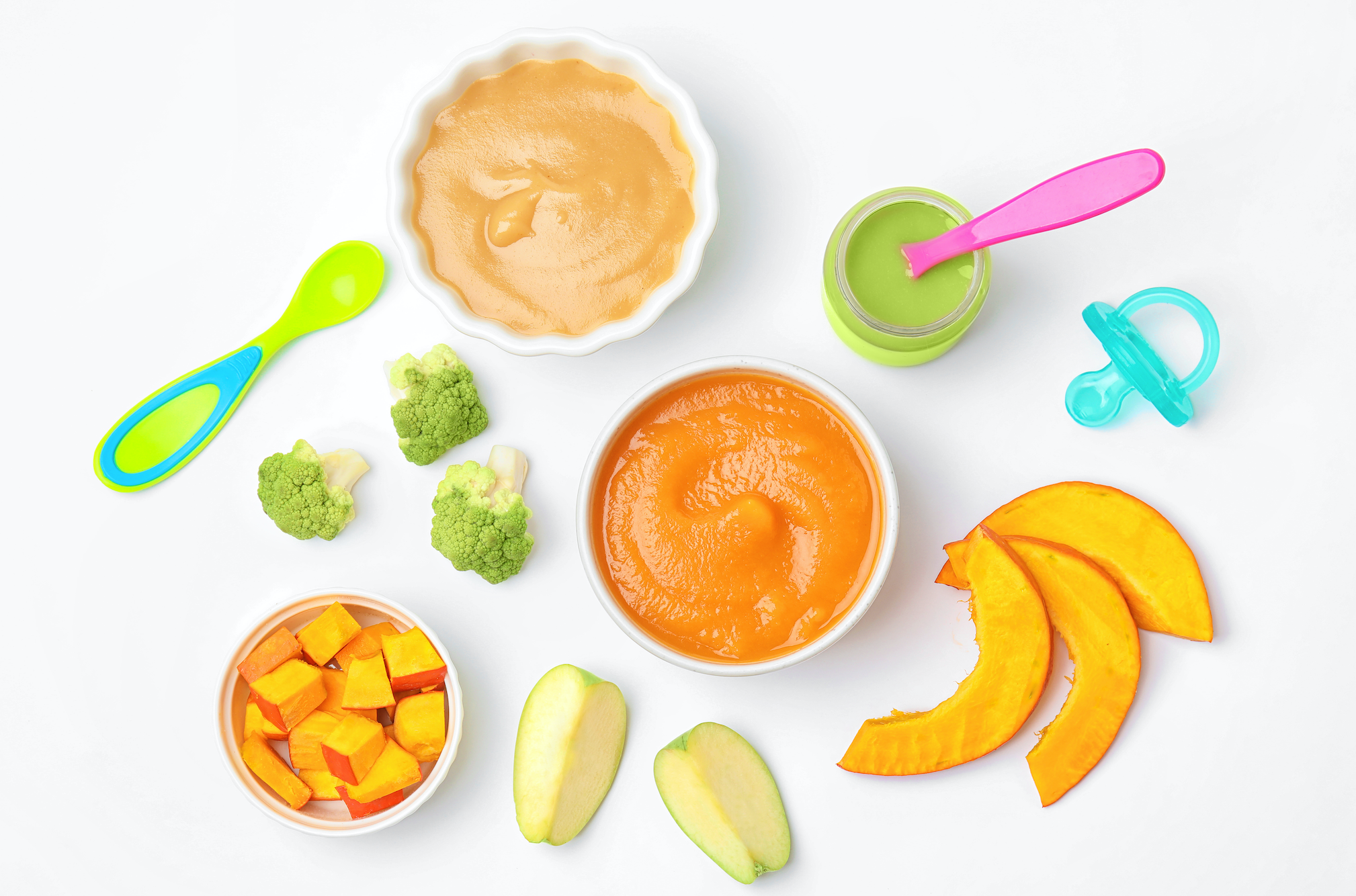
The Most Important Vitamins Needed Now That Baby Is On Solids
It’s important to remember that all babies develop differently and are ready to start solids based on their personal readiness. Always consult with your pediatrician for nutrition advice and when to start your baby on solids.
According to the American Academy of Pediatrics, solids are typically introduced once:
- Baby has head control to pick up and hold their head up.
- When baby opens mouth or shows interest in food.
- And can move food from the spoon and into their mouth.
What’s On The Menu First?

Many parents start their babies off with rice cereal or oatmeal. There are whole grain, quinoa, and multi-grain options. These cereals often are fortified with iron, which is important for helping red blood cells to move oxygen throughout the body. It’s also a popular option for its zinc, which is an essential mineral for a growing baby and also plays a role in immune health.
These are also popular because it’s easily digestible and unlike fruits and vegetables, have a lower risk of causing an allergy.
However, there is no particular order in which parents would give solids. Skipping cereal is fine. Some parents prefer to start with vegetables than fruits. Others start with pureed meats like chicken or beef.
No matter the order, make sure to introduce one food at a time to know what may be the cause of any potential allergies. By a few months in, baby should be eating a well-balanced diet of meat, eggs, dairy, fruits, and vegetables—all served appropriately to prevent any choking hazards of course.
Iron For Breastfed Babies
Did you know that breastfed babies still need an iron supplement? According to the American Academy of Pediatrics, exclusively breastfed babies need an additional 1 milligram of iron for each kilogram of body weight beginning when they are four months old. However, once they are six months, the introduction of solid foods should help meet all iron needs.
Foods high in iron include:
- Beans
- Spinach
- Apricots
- Peaches
- Prunes
- Broccoli
- Brown rice
- Fortified cereal
Vitamin D Supplements
Because formula contains vitamin D, there is no need to add a vitamin D supplement before starting solids. Breastfed babies may require supplements as prescribed by their pediatrician under 12-months-old.
Make sure the baby’s diet includes vitamin D when starting solids.
Vitamin D-rich foods include:
- Eggs
- Yogurt
- Salmon
- Whole milk
B-12
Babies need 0.5 micrograms of B-vitamins each day. Among the most important is vitamin B-12. This vitamin is essential for the nervous system and for preventing developmental delays. It helps to create DNA and promotes healthy blood cells. Babies who are vitamin B-12 deficient can suffer from failure to thrive.
Foods that contain B-12 include:
- Fortified cereals
- Chicken
- Red meat
Vitamin E
By the time baby reaches their first birthday, they need to get 9 IU of vitamin E each day. Vitamin E is needed for immune health. It plays a vital role in warding off infection. It also promotes healthy eyesight and skin.
Foods to add that contain vitamin E include:
- Avocado
- Spinach
- Butternut squash
- Broccoli
Remember to always consult with a pediatrician when starting a baby on solids and deciding what foods to incorporate to ensure they get all their vitamins.




